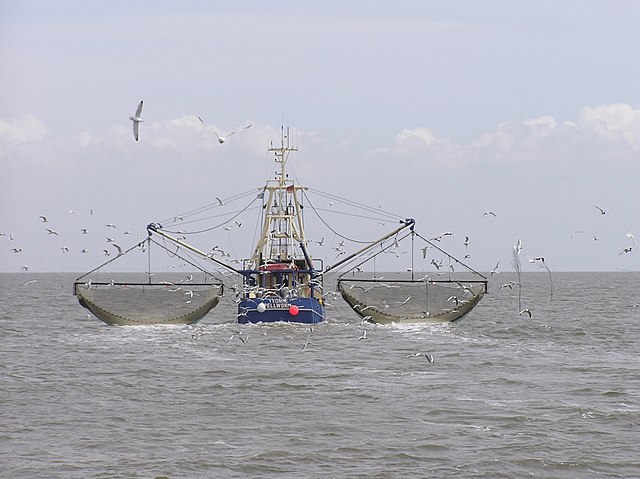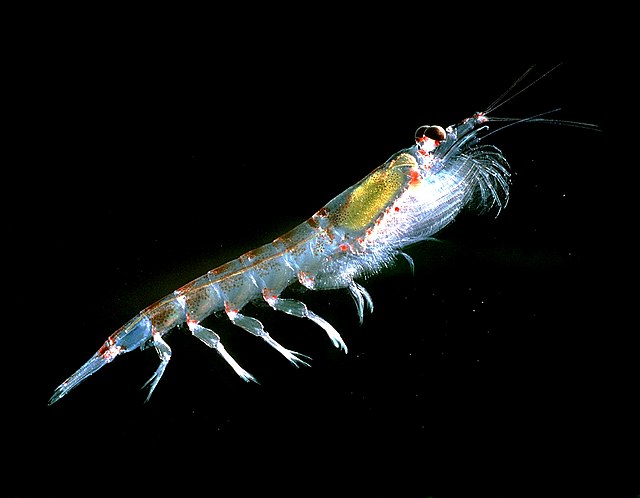Fishery can mean either the enterprise of raising or harvesting fish and other aquatic life or, more commonly, the site where such enterprise takes place. Commercial fisheries include wild fisheries and fish farms, both in freshwater waterbodies and the oceans. About 500 million people worldwide are economically dependent on fisheries. 171 million tonnes of fish were produced in 2016, but overfishing is an increasing problem, causing declines in some populations.
Salmon spawn in a salmon fishery within the Becharof Wilderness in Southwest Alaska.
% of fisheries exploited over time
Fishermen in Sesimbra, Portugal
A signboard listing fishing regulations at Horton Creek, Arizona
A wild fishery is a natural body of water with a sizeable free-ranging fish or other aquatic animal population that can be harvested for its commercial value. Wild fisheries can be marine (saltwater) or lacustrine/riverine (freshwater), and rely heavily on the carrying capacity of the local aquatic ecosystem.
Crab boat from the North Frisian Islands working in the North Sea
A schematic of modern thermohaline circulation
Estimate of biomass produced by photosynthesis from September 1997 to August 2000. This is a rough indicator of the primary production potential in the oceans. Provided by the SeaWiFS Project, NASA/Goddard Space Flight Center and ORBIMAGE.
Antarctic krill comprise about 0.7% of the Earth's biomass, the highest of any single animal species.








